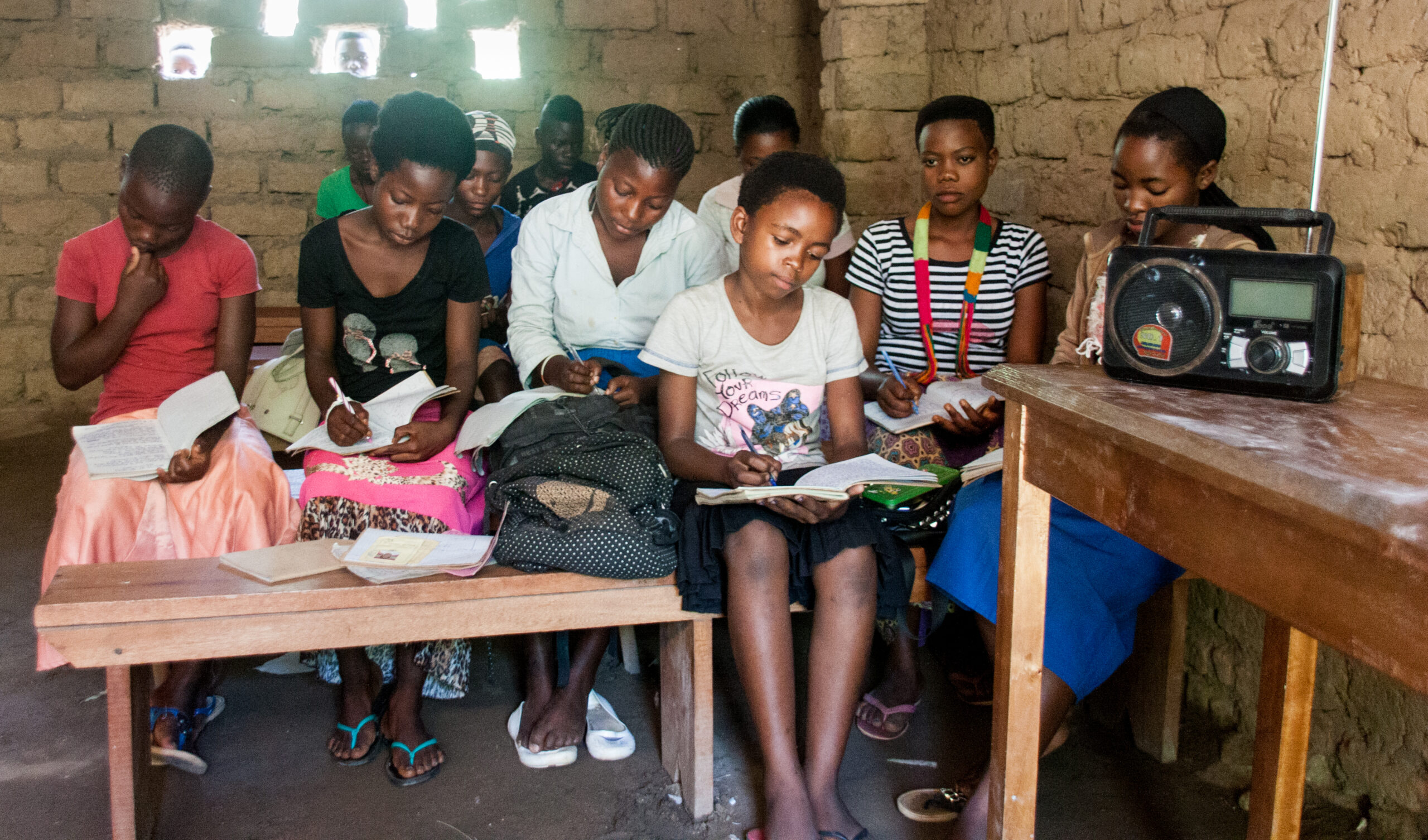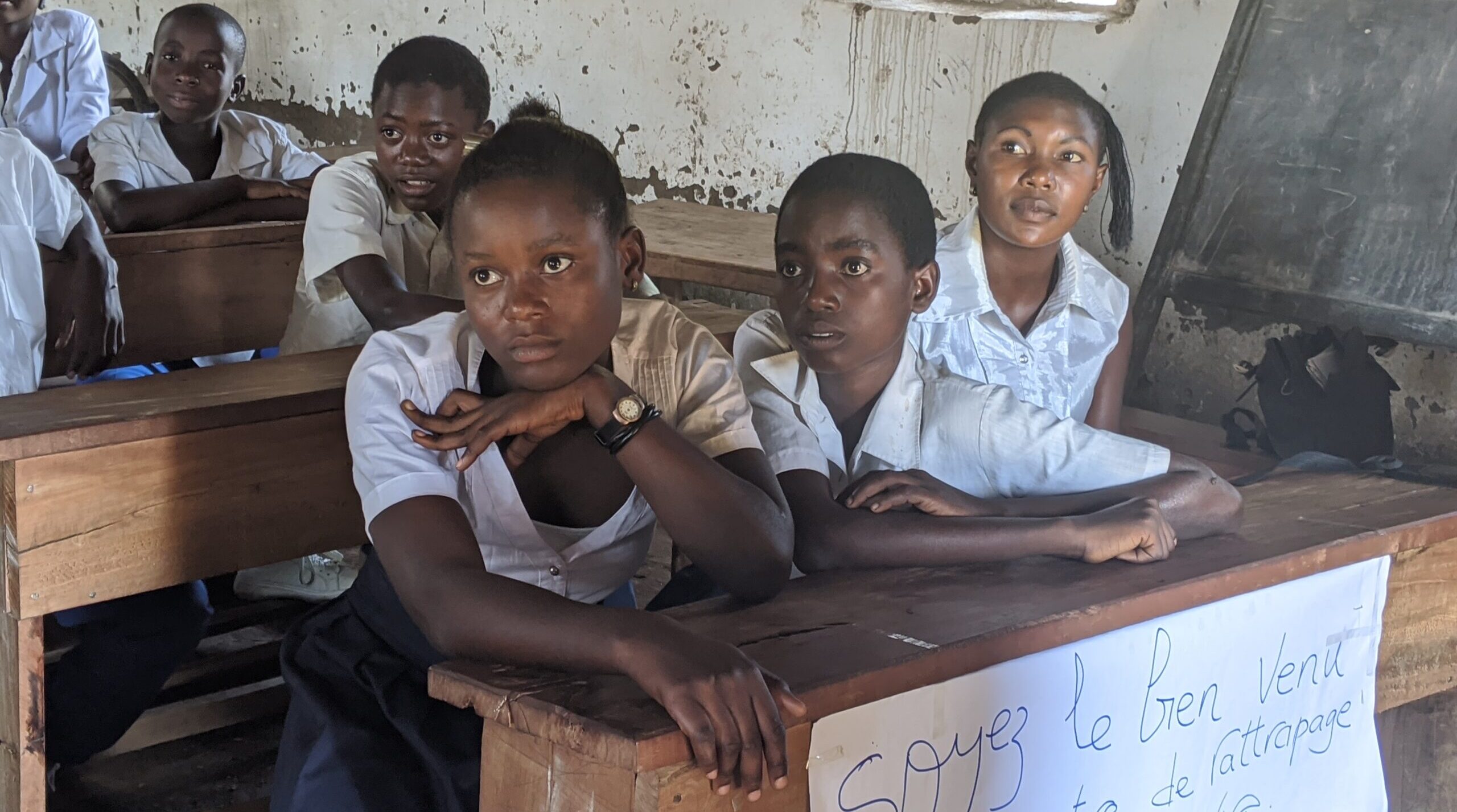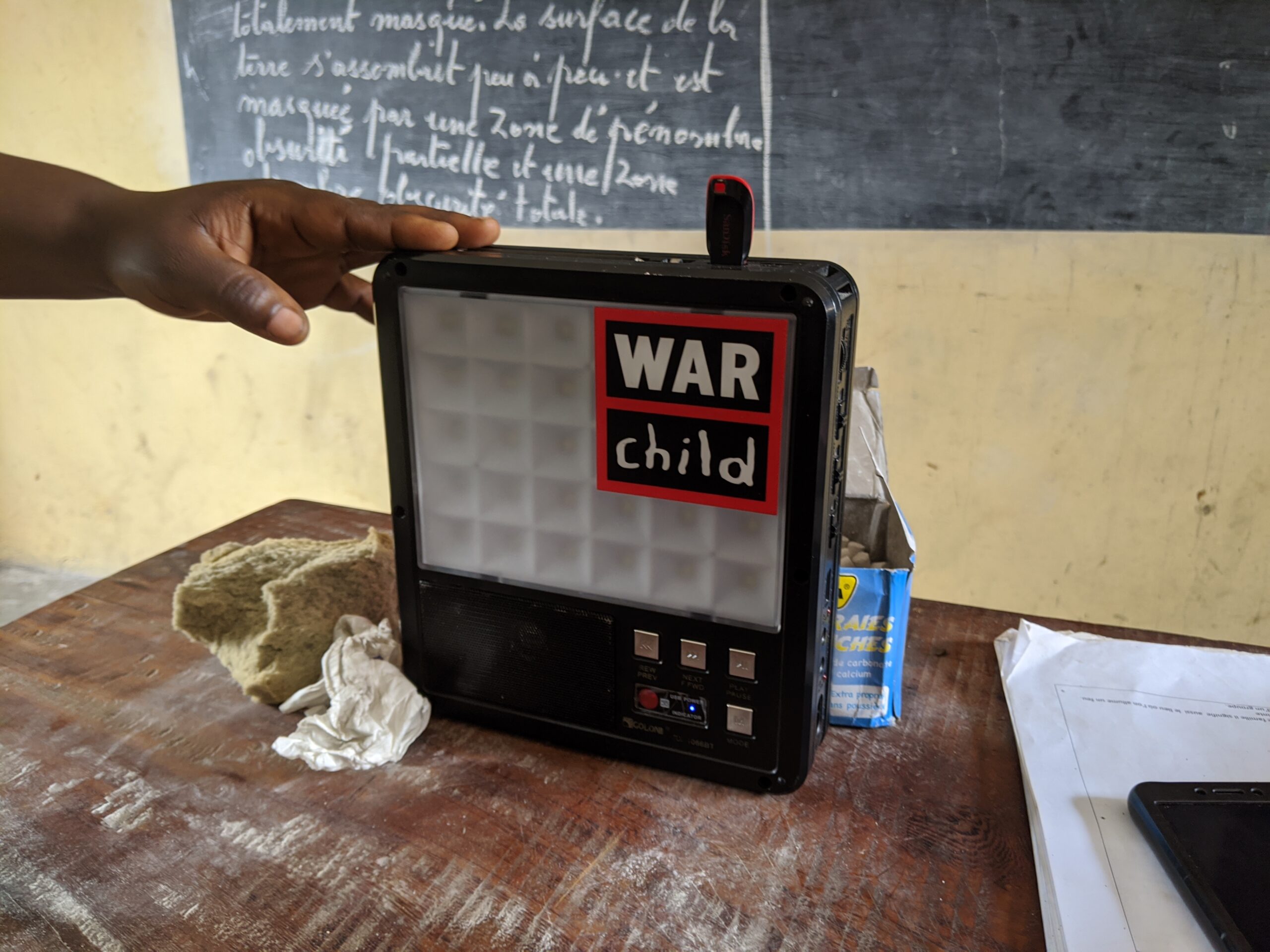Radio-based education promotes access to education for Congolese children

The Democratic Republic of the Congo (DRC) remains one of the world’s most protracted and complex humanitarian crises. Decades of conflict, human rights violations, and gender-based violence have driven massive needs and heightened protection risks.
Since January 2025, escalating violence in eastern DRC has displaced a record 7.3 million people and forced over 86,000 to flee the country. With conflict, food insecurity, climate shocks, and disease compounding the crisis, 27 million people now require urgent humanitarian support. The situation in DRC worsened since the end of 2021, when the M23 rebel group has been terrorizing villages in the northeast of the country.
This resurgence of violence has had a profound impact on children’s access to formal education. Many other schools have become temporary shelters for conflict-displaced families.
Unfortunately, having one’s education cut short because of conflict is a reality that many Congolese students have had to endure. In those parts of the country plagued by violence, the walk to school – often over many kilometers to neighbouring villages – can be incredibly dangerous.
With a proliferation of armed actors in rural areas, girls face the threat of sexual violence or abduction and boys the threat that they will be taken and forced to become child soldiers.
Radio-Based Education in the DRC

What's different about our approach?
Nearly a decade ago, War Child recognized the need to create safe spaces for Congolese children to continue their education during times of conflict. That is why we developed a ground-breaking, interactive radio-based education program. We adapted the national curriculum to a series of radio dramas so that children no longer needed to make that dangerous trek to formal schools but rather could learn where they lived with the guidance of specially trained teaching assistants. Developing innovative solutions is essential to working in war zones and is one of the reasons why War Child is a global leader in the education of children in conflict.



